Skin Cancer
Protect Your Skin, Save Your Life: Advanced Skin Cancer Screening & Treatment in Karachi
Early Detection Starts at The Skin Clinic by Dr. Khilji Faisal Arif – Your Trusted Dermatologist in DHA Zamzama
Skin cancer is one of the most common—and most preventable—forms of cancer worldwide. With Karachi’s intense sun exposure and rising UV levels, regular screenings and preventive care are more important than ever. At The Skin Clinic, under the expert care of Dr. Khilji Faisal Arif, we specialize in early detection, diagnosis, and providing safe and effective treatment options tailored to your specific condition and skin type.
What Is Skin Cancer?
Skin cancer is the abnormal growth of skin cells, often triggered by excessive UV radiation from the sun or artificial sources. It typically appears on sun- exposed areas, such as the face, scalp, neck, ears, arms, and chest, but can develop anywhere on the body.
If detected early, most types of skin cancer are treatable with minimal intervention. That’s why routine skin cancer screenings in Karachi are essential, especially in a city with year-round sun.
- BCC is the most common type of skin cancer, typically presenting as flesh-colored or pearl-like bumps.
- It frequently occurs in individuals with fair skin but can also affect people with darker skin tones.
- BCC development is joint in areas exposed to prolonged sun exposure, such as the face, neck, and arms.
- Early detection and treatment are essential to prevent tissue invasion and disfigurement.
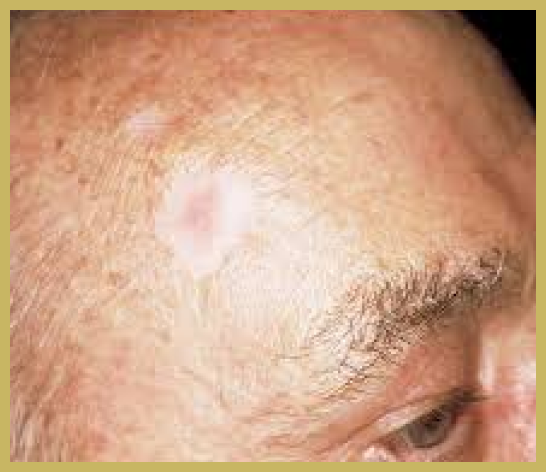
Medical Dermatology
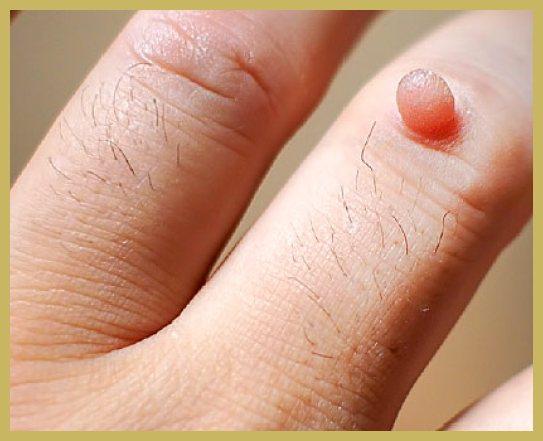
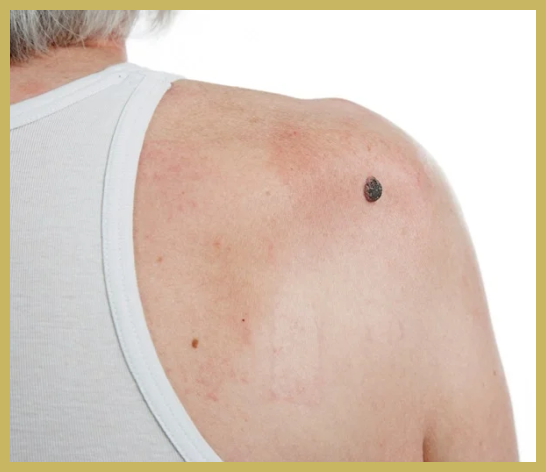
Types of Skin Cancer Commonly Seen in Karachi
Basal Cell Carcinoma (BCC)
- The most common form of skin cancer
- Often appears as pearly bumps or flesh-toned nodules
- Familiar with sun-exposed areas: face, ears, neck, and arms
- Grows slowly but can cause disfigurement if untreated
Squamous Cell Carcinoma (SCC)
- Appears as red, scaly patches or firm bumps
- May form sores that don't heal
- Found on ears, face, chest, back, and hands
- Requires prompt treatment to avoid tissue damage
Melanoma
- The most dangerous form of skin cancer
- May begin as a changing mole or a new dark spot
- Early detection is crucial for survival
- Follow the ABCDE rule: Asymmetry, Border, Color, Diameter, Evolving
How to Prevent Skin Cancer in Karachi's Climate
Skin cancer prevention starts with sun safety and lifestyle awareness:
- Limit Sun Exposure
- Avoid the sun between 10 AM and 4 PM, when UV rays are strongest
- Stay in shaded areas and wear protective clothing
- Use Daily Sunscreen
- Apply broad-spectrum SPF 30 or higher
- Don’t skip cloudy days or winter months—UV rays are still active
- Choose Protective Accessories
- Wear wide-brimmed hats, UV-protective sunglasses, and long sleeves.
- Monitor the UV Index
- Apps and websites can help you track daily UV intensity, allowing you to plan accordingly.
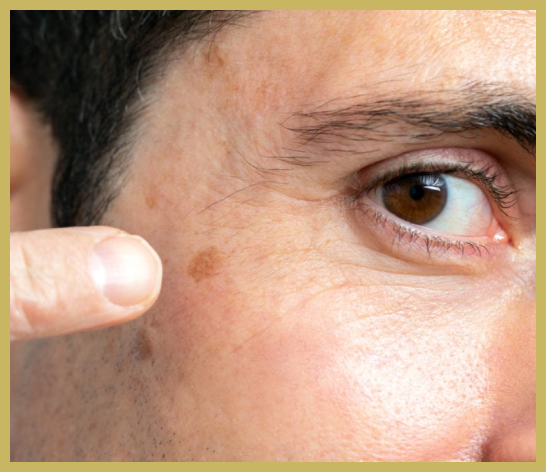
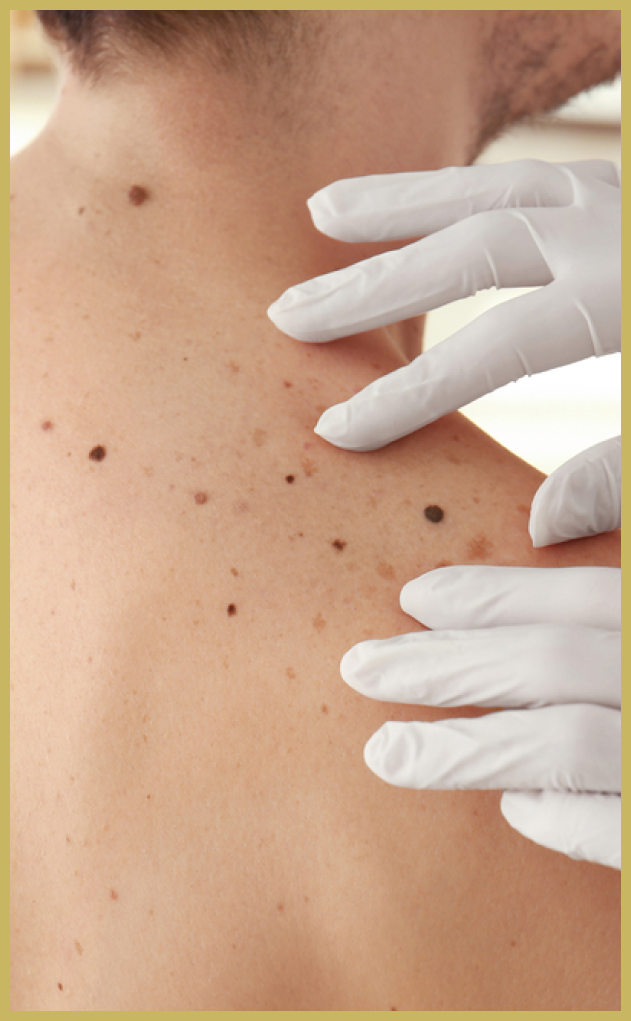
Why Are Skin Cancer Screenings Important?
You may be wondering:
- How do I know if I have skin cancer?
- What does a suspicious mole look like?
- When should I see a dermatologist in Karachi for a screening?
The answer: When in doubt, check it out.
At The Skin Clinic by Dr. Khilji Faisal Arif, we perform thorough skin examinations to identify:
- Unusual moles or lesions
- Skin changes that might indicate BCC, SCC, or Melanoma
- Areas needing a biopsy for accurate diagnosis
We recommend annual skin screenings, especially for individuals with:
- A history of sunburns or tanning
- A family or personal history of skin cancer
- Many moles or changing spots
- Fair skin or excessive sun exposure
Dr. Khilji Faisal Arif – Karachi's Trusted Skin Cancer Specialist
With nearly two decades of clinical dermatology experience, Dr. Khilji Faisal Arif is recognized as a leading specialist in skin cancer care in Karachi. His
approach is based on:
- Accurate diagnosis through clinical exams and skin evaluations
- Patient-centered care that minimizes unnecessary treatment
- Personalized treatment plans, created after proper medical testing and
- dermatological consultation
- Advanced facilities and state-of-the-art diagnostic tools
Whether you’re worried about a suspicious mole or need expert guidance, The Skin Clinic offers safe and effective solutions in a comfortable, professional environment.
Skin Cancer Treatment Options at The Skin Clinic
Treatment depends on your diagnosis, skin type, and overall health. At The Skin Clinic, options may include:
- Cryotherapy (freezing lesions)
- Surgical removal (excision with precision)
- Laser and light-based therapies
- Follow-up monitoring for recurrence or spread
Important Note: All treatment plans are created following a medical consultation and, if necessary, a skin biopsy or laboratory testing. No over- the-counter or generalized medication is recommended without a personalized evaluation.
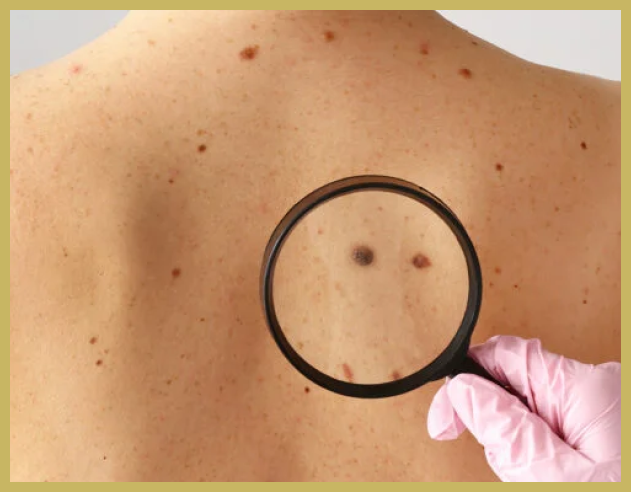
How can I determine if a mole is potentially dangerous?
Look for ABCDE signs (Asymmetry, Border, Color, Diameter, Evolving) and visit a dermatologist if concerned.
Can people with darker skin get skin cancer?
Yes. Although more common in fair skin, all skin types are at risk, especially when exposed to UV rays.
Is sunscreen effective?
Absolutely. Daily sunscreen use is one of the best defences against UV damage and skin cancer.
Book a Skin Cancer Screening in Karachi Today
Your skin deserves expert care. Schedule screening with Dr. Khilji Faisal Arif, one of Karachi’s most experienced dermatologists, and take the first step toward lifelong skin protection.
Stay Protected. Get Screened. Stay Confident.
Early detection saves lives. Trust Dr. Khilji Faisal Arif for precise diagnosis,
ethical treatment, and compassionate care in the prevention and
management of skin cancer.
